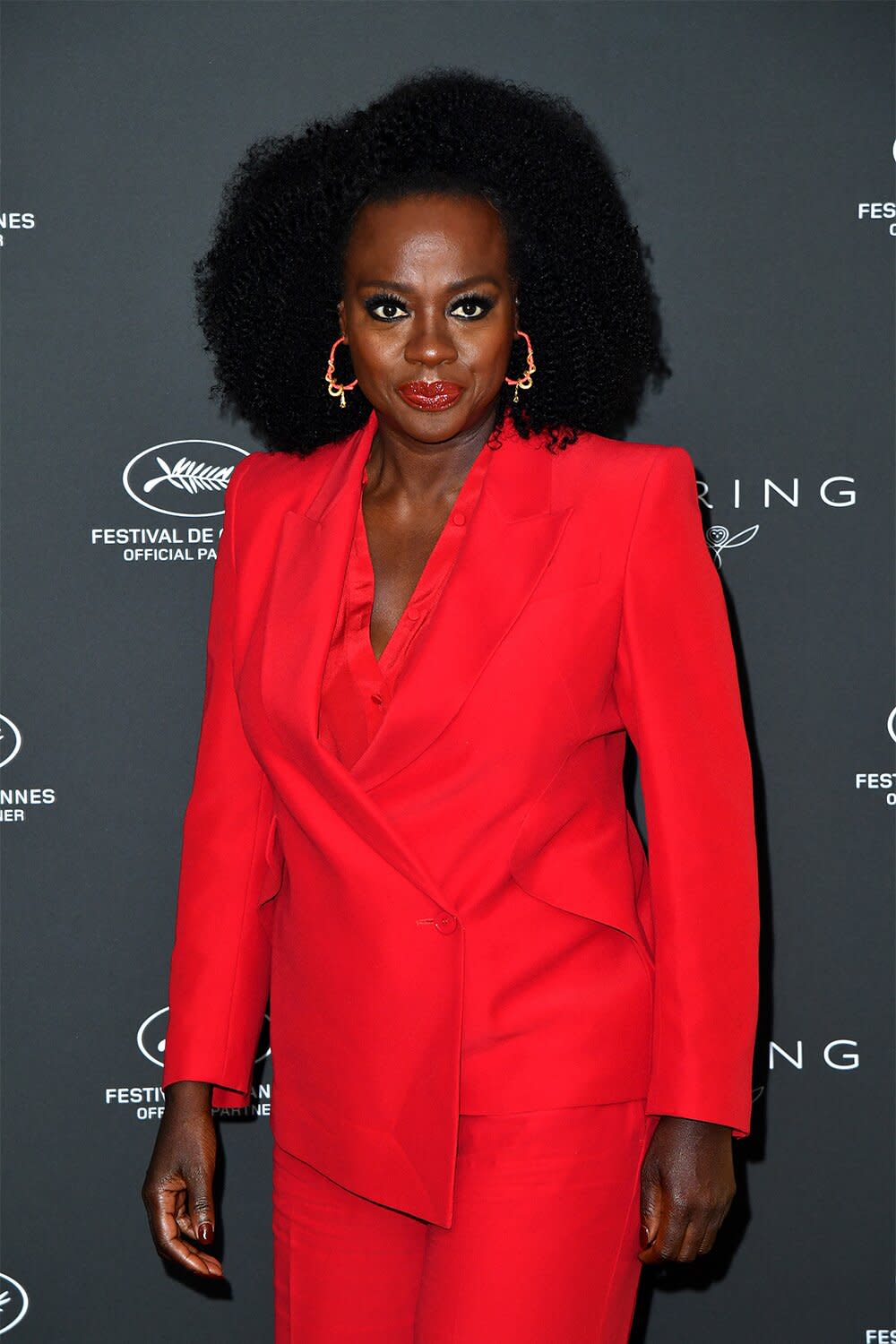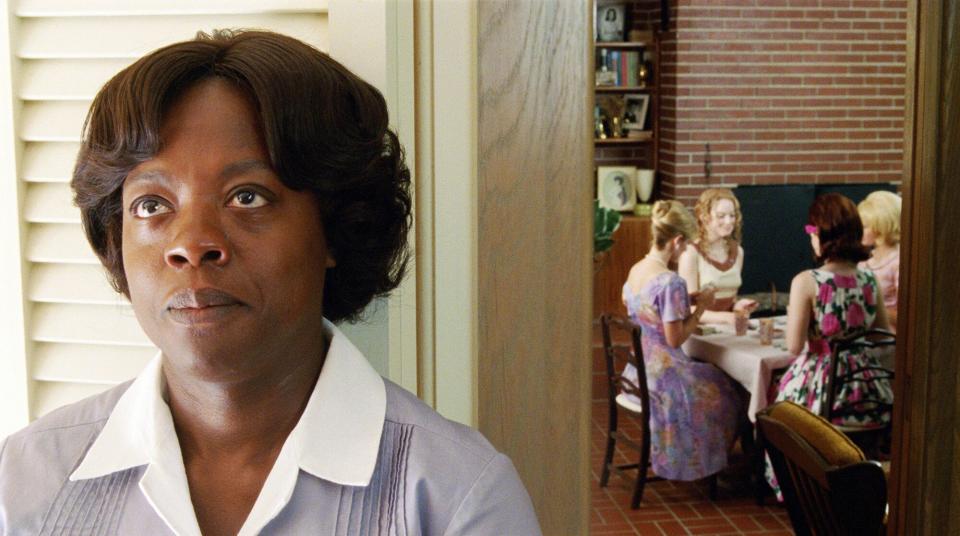Viola Davis Says Director Once Called Her by His Maid's Name: 'Microaggressions Happen All the Time'

- Oops!Something went wrong.Please try again later.
Dominique Charriau/WireImage Viola Davis
Viola Davis is recalling an example of a racist microaggression she dealt with earlier in her Hollywood career.
Speaking at the 2022 Cannes Film Festival during Variety and Kering's Women In Motion discussion, the Oscar winner said a director, whom she didn't name, once mistakenly referred to her by his maid's name, even though he'd known Davis "for 10 years."
"I had a director who did that to me ... and I find out that it's because [it's] his maid's name," said Davis, 56. "I was maybe around 30 at the time, so it was a while ago. But what you have to realize is that those microaggressions happen all the time."
The Woman King actress added that Black women tend to be confined to certain storylines, making it difficult to make different types of movies.
"If I wanted to play a mother whose family lives in a low-income neighborhood and my son was a gang member who died in a drive-by shooting, I could get that made. If I played a woman who was looking to recreate herself by flying to Nice and sleeping with five men at the age of 56 — looking like me, I'm going to have a hard time pushing that one, even as Viola Davis," she explained.
Never miss a story — sign up for PEOPLE's free daily newsletter to stay up-to-date on the best of what PEOPLE has to offer, from juicy celebrity news to compelling human interest stories.

Dreamworks Pictures/Kobal/Shutterstock Viola Davis in The Help (2011)
RELATED: Viola Davis Says Her Movie The Help Was Created in the "Cesspool of Systemic Racism"
The How to Get Away with Murder alum added of being turned down on projects, "A lot of it is based in race. It really is."
"Let's be honest. If I had my same features and I were five shades lighter, it would just be a little bit different. And if I had blonde hair, blue eyes and even a wide nose, it would be even a little bit different than what it is now," she continued.
"We could talk about colorism. We could talk about race," the actress said. "It pisses me off, and it has broken my heart — on a number of projects, which I won't name."
Davis previously opened up about being regretful for playing the role of a maid named Aibileen in the fictional 2011 movie The Help, for which she earned an Oscar nomination for Best Actress.
"I just felt that at the end of the day that it wasn't the voices of the maids that were heard," Davis told The New York Times in 2018. "I know Aibileen. I know Minny. They're my grandma. They're my mom. And I know that if you do a movie where the whole premise is, I want to know what it feels like to work for white people and to bring up children in 1963, I want to hear how you really feel about it. I never heard that in the course of the movie."
RELATED VIDEO: Viola Davis Opens Up About Bullying, Trauma in New Memoir: I Was "Hiding a Huge Part of My Story"
Davis clarified that, though she now doesn't like the way her character was portrayed, she's still grateful for the bonds she made with her costars.
"But not in terms of the experience and the people involved because they were all great," she said. "The friendships that I formed are ones that I'm going to have for the rest of my life. I had a great experience with these other actresses, who are extraordinary human beings. And I could not ask for a better collaborator than [writer-director] Tate Taylor."
Last month, Davis spoke to PEOPLE about her new memoir Finding Me, admitting that she had "an enormous existential crisis" before deciding to write the book.
"I always thought acting defined my life, and it doesn't," she said. "What people in the world tell you is that if you find that thing that you do, that you are great at, then that's it. And you have money in the bank, and you have a house, and you have a cute husband, and he loves you and your kid, that's it. And it's not."
"I was still hiding a huge part of my story," added Davis. "It's almost like I reinvented all the things that I wanted to and tossed away the rest of it. You know when you look at pictures down memory lane, and you see it differently. I'm looking at little Viola, and I see how strong she was and how she was just a spitfire. I think that's why I wrote the book, that if I somehow explored it, unpacked those memories, resolving them, that somehow I could find my peace."

